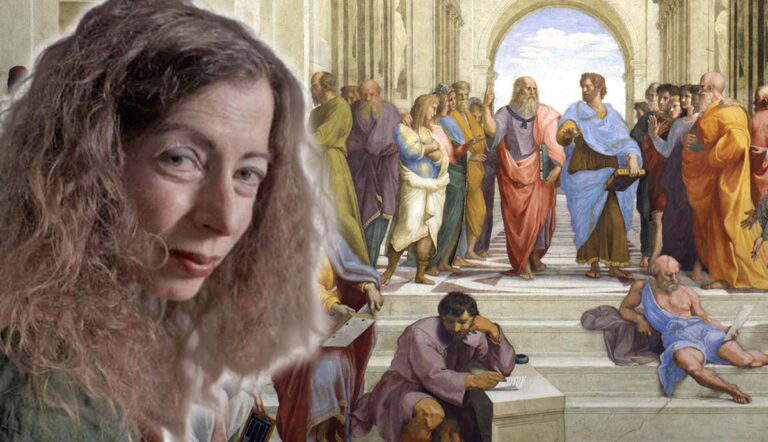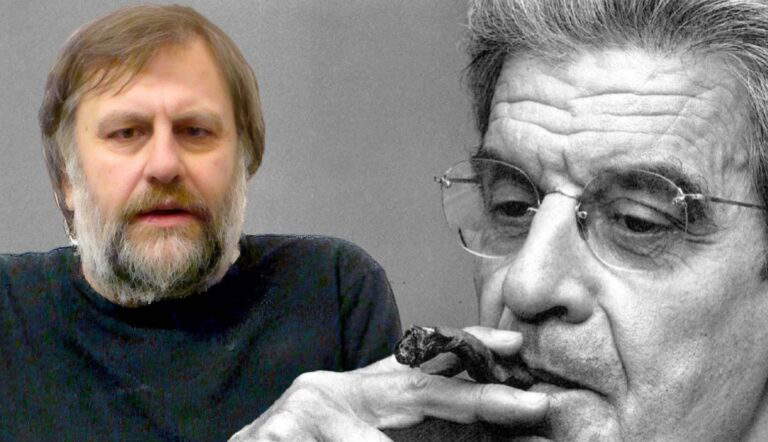
Moses May-Hobbs
@moses-may-hobbs
Moses May-Hobbs is a recent graduate of Cambridge University. His writing focuses on aesthetics, the philosophy of art, and film criticism. He is currently working as a contributing writer and editor, while writing in his spare time on the philosophy of language, perception, and affect.

Gillian Rose: A Critique of Post-Structuralism & Ethics
Gillian Rose offers a critique of post-structuralist thought, focusing on Derrida and Foucault’s failures to escape the metaphysics they decry.

The Importance of Jacques Lacan’s Psychoanalysis in Slavoj Žižek’s Philosophy
Slavoj Žižek’s philosophy has been instrumental in popularizing Jacques Lacan’s work. But as this article demonstrates, Žižek’s version of Lacan is decidedly his own.

Was Spinoza an Atheist? The Theological-Political Treatise
Discover how Spinoza's treatise challenges religious authority, critiques superstition, and redefines the role of faith in politics.

Derrida vs. Saussure: Structuralism’s Criticism of Logocentrism
Jacques Derrida dramatically overturned the structuralist thought of the twentieth century, criticizing it for its “logocentric” elevation of speaking over writing.

Understanding Lacan’s ‘The Four Fundamental Concepts of Psychoanalysis’
Jacques Lacan introduces revisions to Freudian theories of psychoanalysis, transference, and the nature of our drives. These revisions are articulated in his seminar of 1964.

What is Theodor Adorno’s Negative Dialectics?
Theodor Adorno’s Negative Dialectics proposes an alternative dialectical approach to Hegel’s, which seeks to overcome the limits of subjectivity through negation.

Baruch Spinoza’s Political Philosophy: Rights & Normativity
Baruch Spinoza’s political philosophy attempts to weld his overarching naturalism and determinism with prescriptions for good governance.

Jacques Lacan: Explaining the Imaginary, the Symbolic, and the Real
Lacan described three “orders” or “registers” of psychoanalytic experience. One of Lacan’s major revisions to Freud’s thought is his emphasis on the “symbolic” order and language.

Walter Benjamin’s Theses: Is Progress Inevitable?
Walter Benjamin’s Theses on the Philosophy of History is an ambiguous and controversial text, which blends theology and revolutionary politics to lay out the proper study of history.

Do We Want What We Think We Want? Jacques Lacan on Desire
Jacques Lacan’s conception of desire and fantasy are central to his thought. Lacan describes desire as a search for a satisfaction that is impossible.

Why Emmanuel Levinas Called Ethics the “First Philosophy”
Aristotle and Descartes both use the term “first philosophy” to refer to metaphysics, but Emmanuel Levinas uses the term to describe ethics, in a gesture of philosophical iconoclasm.

Walter Benjamin: What are the Connections Between Language and Theology?
Walter Benjamin’s ideas on language are deeply bound up with theology. He posits an ideal divine language, which we have strayed from and should return to.